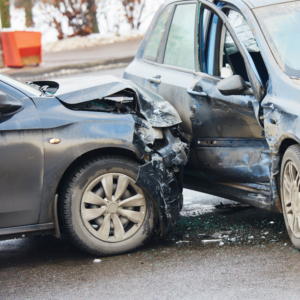While there isn’t a specific average Lyft accident settlement amount, settlements typically depend on various factors like the severity of injuries, medical expenses, lost wages, and pain and suffering. Understanding potential settlement amounts is crucial for accident victims because it allows them to understand what they could expect to receive to help recover from their losses. Settlements can help pay medical bills, compensate for time missed from work, and support ongoing care or rehabilitation.
It’s important to note that each accident case is unique, and settlement amounts can vary widely. Seeking legal advice from an experienced Lyft accident attorney can help victims understand their rights and pursue fair compensation.
How Much Is My Lyft Accident Worth?
 Determining the value of a Lyft car accident settlement isn’t always straightforward. It depends on various factors, including the extent of your injuries, the impact on your life and ability to work, and the specific circumstances surrounding the accident.
Determining the value of a Lyft car accident settlement isn’t always straightforward. It depends on various factors, including the extent of your injuries, the impact on your life and ability to work, and the specific circumstances surrounding the accident.
The severity of your injuries plays a significant role in determining the worth of your Lyft accident case. More severe injuries often result in higher settlement amounts to cover medical expenses, ongoing treatment, and mental distress. Additionally, if your injuries lead to long-term disabilities or impairments, the settlement may need to account for future medical costs and lost earning potential.
How the Lyft accident happened also affects how much money you might receive in a settlement. Factors such as who was at fault, the actions of the Lyft driver, and whether any other parties were involved can impact the outcome of your case. For example, if the Lyft driver was negligent or if multiple vehicles were involved, it could affect the settlement negotiations.
Every Lyft accident case differs, and settlement amounts can vary greatly depending on the situation. Talking with a Lyft accident lawyer can help you understand your case better and aim for a fair settlement that covers your losses.
What Damages Can You Receive Following a Lyft Accident?
Compensatory damages are financial awards granted to someone who has suffered harm or loss due to another party’s actions or negligence. These damages aim to “compensate” the injured party for their losses due to the incident.
Economic Damages:
Economic damages are the tangible financial losses you experience due to the accident. They include:
- Medical Bills: This covers the costs of medical treatment you’ve received due to injuries sustained in the accident, such as hospital stays, surgeries, medication, and doctor visits.
- Lost Wages: If you missed work due to the accident, you can receive compensation for the income you would have earned during that time.
- Rehabilitation Costs: If you require ongoing medical treatment, therapy, or rehabilitation to recover from your injuries, these expenses are included in economic damages.
Non-Economic Damages:
Non-economic damages are more subjective and relate to the intangible losses you experience. Examples include:
- Pain and Suffering: This compensation accounts for the physical pain and discomfort you endure due to your injuries.
- Emotional Distress: This covers the psychological impact of the accident, including anxiety, depression, and trauma.
- Loss of Enjoyment of Life: If your injuries prevent you from participating in activities you used to enjoy, you may be compensated for this loss.
How Are Lyft Settlement Values Are Calculated?
Calculating the value of a Lyft settlement involves considering several factors that contribute to determining fair compensation for injuries and damages.
Your Past and Future Medical Care
The costs associated with your past medical care and anticipated future medical needs play a significant role in determining settlement amounts. This includes expenses like hospital bills, surgeries, medications, and ongoing therapy or rehabilitation. The importance of medical expenses in settlement valuation cannot be overstated, as they directly reflect the financial impact of your injuries and the care you may need in the future.
The Severity of Your Injuries
The seriousness of your injuries greatly influences the compensation you may receive. More severe injuries typically lead to higher settlement amounts to cover medical costs, lost earnings, and mental distress. Factors such as the type of injury, its long-term effects, and any resulting disabilities or limitations are crucial in determining settlement valuation.
Pain and Suffering
Although not easily measurable, pain and suffering are important factors in Lyft settlement calculations. Assessing the impact of mental distress involves considering factors such as the duration and intensity of pain, emotional distress, and how the injuries affect daily life activities. Although challenging, methods exist for assigning monetary value to pain and suffering to ensure fair compensation for these intangible losses.
Lost Income and Loss of Earning Capacity
Compensation for lost wages and future earning potential is another key aspect of Lyft settlement values. If the accident causes you to miss work, you may be entitled to reimbursement for the income you would have earned during that time. Additionally, if your injuries affect your ability to work in the future or diminish your earning capacity, compensation may be awarded to account for these losses.
What Is the Average Uber and Lyft Settlement Amount?
While there’s no exact average, settlement amounts can range from a few thousand dollars to several hundred thousand dollars or even more in severe cases.
Several factors contribute to the variability in settlement amounts, including the severity of injuries, medical costs, lost earnings, pain and suffering, and the specific accident circumstances. Settlements may also vary based on the jurisdiction where the accident occurred and the insurance policies of the involved parties.
It’s important to understand that each Uber and Lyft accident case is unique, and settlement amounts are determined based on the circumstances of the case. What one person receives in a settlement may not necessarily reflect what another person might receive for a similar accident.
How is Liability Determined in a Rideshare Accident?
Determining liability in rideshare car accidents involves understanding who is responsible for the crash and who should compensate the injured parties for their losses. Liability can be determined based on various factors, including the drivers’ actions, the accident’s circumstances, and applicable laws and regulations.
The driver’s status during the accident is crucial in determining liability. For example:
- App On, No Passenger: If the rideshare driver had the app turned on but wasn’t carrying a passenger at the time of the accident, liability may depend on whether the driver was actively engaged in providing rideshare services. The rideshare company’s insurance policy may sometimes cover accidents during this period.
- Carrying a Passenger: If the rideshare driver was actively transporting a passenger at the time of the accident, the rideshare company’s insurance policy typically covers the driver, passengers, and other parties involved in the accident. In this scenario, liability may still be determined based on driver negligence or other contributing factors.
Determining liability in rideshare accidents can be complex, as multiple parties may share responsibility. Each party involved—rideshare companies, Lyft drivers, other motorists, and pedestrians—may have played a role in the accident, either directly or indirectly. Figuring out who bears responsibility requires a thorough investigation involving gathering evidence, interviewing witnesses, and examining relevant laws and regulations.
Understanding the driver’s status at the time of the accident helps establish the scope of insurance coverage available and identifies potential sources of compensation for the injured parties. Were they actively engaged in providing rideshare services, or were they off-duty? This distinction can significantly affect insurance coverage and compensation for injured parties.
How to Seek Compensation: The Claims Process
Seeking compensation after a rideshare accident involves a structured process to ensure injured parties receive the support they need to recover from their losses.
Reporting the Accident: The first step in seeking compensation is reporting the accident to the rideshare company and the police. Lyft will begin its investigation right away once it learns of the accident.
Gathering Evidence: Collecting evidence is crucial for building a strong claim. This might encompass images of the accident site, testimonies from witnesses, medical documentation, and any other relevant records about the incident and your injuries.
Filing a Claim: Once you’ve gathered all the necessary evidence, you can file a claim with the rideshare company’s insurance provider. This typically involves submitting a detailed account of the accident and supporting documentation.
Negotiating a Settlement: After filing a claim, you may deal with the insurance company to reach a settlement agreement. This process involves discussions to determine appropriate compensation for your injuries and losses.
Litigation, if Necessary: If a settlement can’t be reached through negotiations, you may pursue litigation by filing a lawsuit against the at-fault party. This involves presenting your case in court and allowing a judge or jury to determine the outcome.
Handling the claims process can be complex, especially when dealing with insurance companies and legal procedures. Personal injury attorneys can help guide accident victims through this process and advocate for their rights.
If your case escalates to litigation, your car accident lawyer will serve as your representative in court. Leveraging their legal knowledge and skills, they’ll passionately argue on your behalf, aiming for a favorable outcome.
How Our Lyft Accident Lawyers Can Help
 Munley Law’s Lyft accident lawyers are here to guide you through the complexities of seeking compensation after your ordeal. Understanding potential Lyft accident settlements is crucial for ensuring you receive fair compensation for your losses. Our experienced rideshare accident attorney can provide invaluable insight into the factors that influence settlement amounts, helping you confidently navigate the claims process.
Munley Law’s Lyft accident lawyers are here to guide you through the complexities of seeking compensation after your ordeal. Understanding potential Lyft accident settlements is crucial for ensuring you receive fair compensation for your losses. Our experienced rideshare accident attorney can provide invaluable insight into the factors that influence settlement amounts, helping you confidently navigate the claims process.
We encourage you to take the next step and consult with a personal injury attorney who can offer personalized advice tailored to your unique situation. By seeking legal guidance, you can clearly understand your rights and options for pursuing compensation. Don’t hesitate to contact our team for the support you need during this challenging time.










